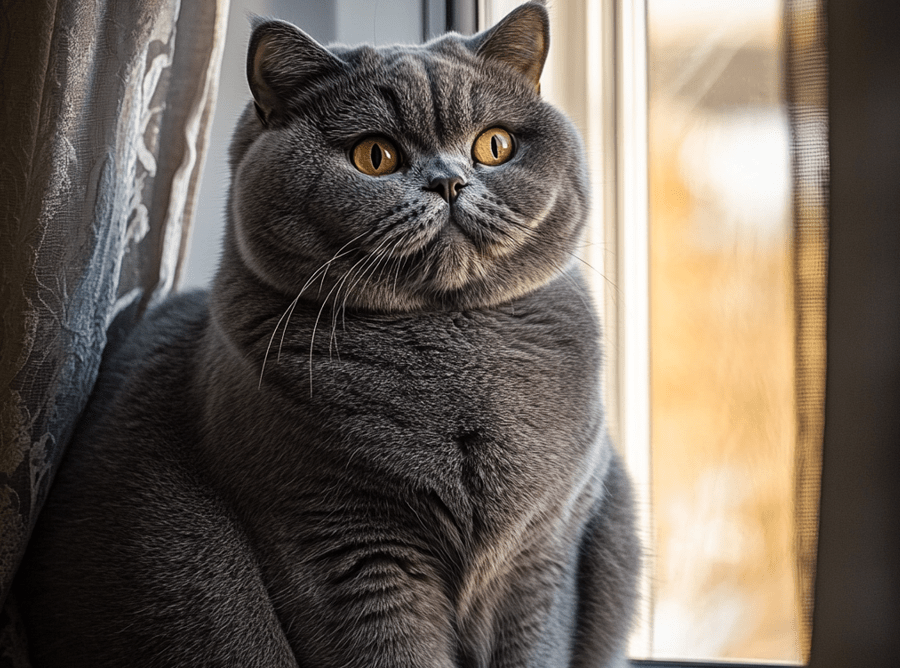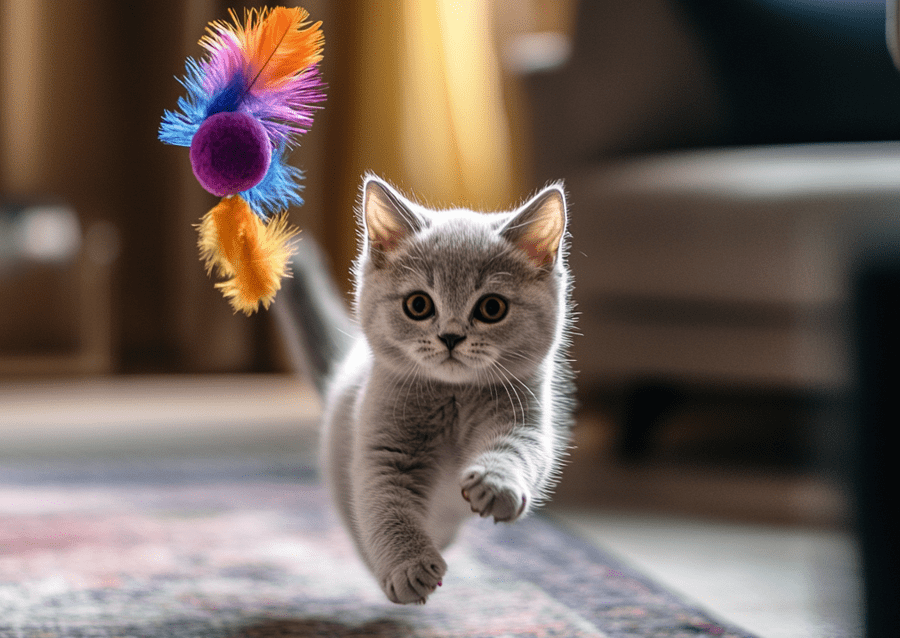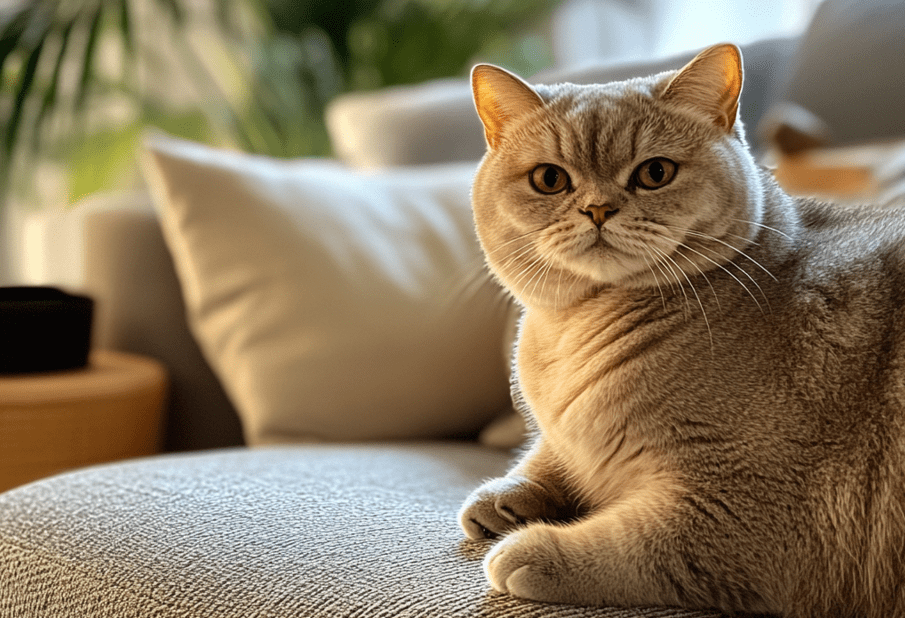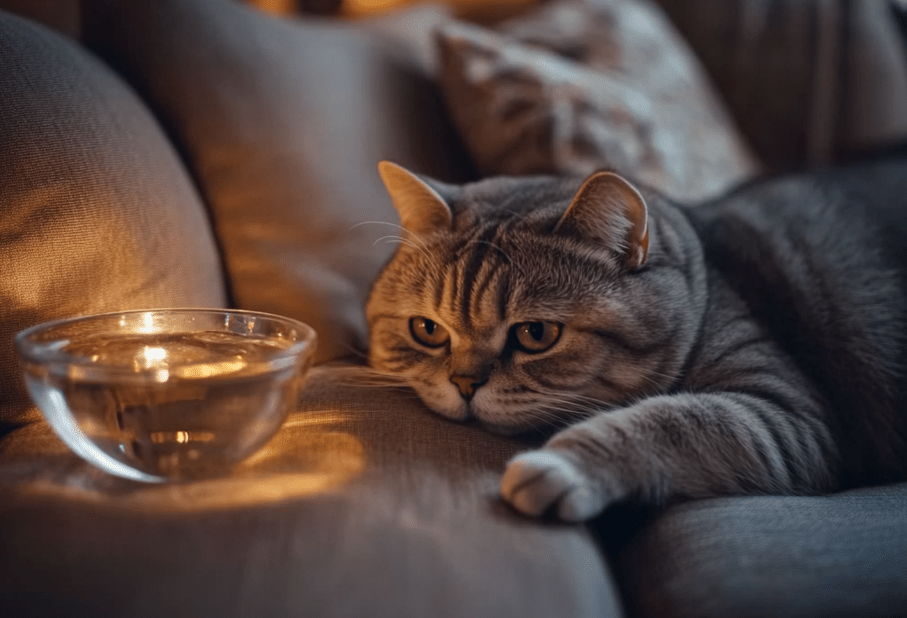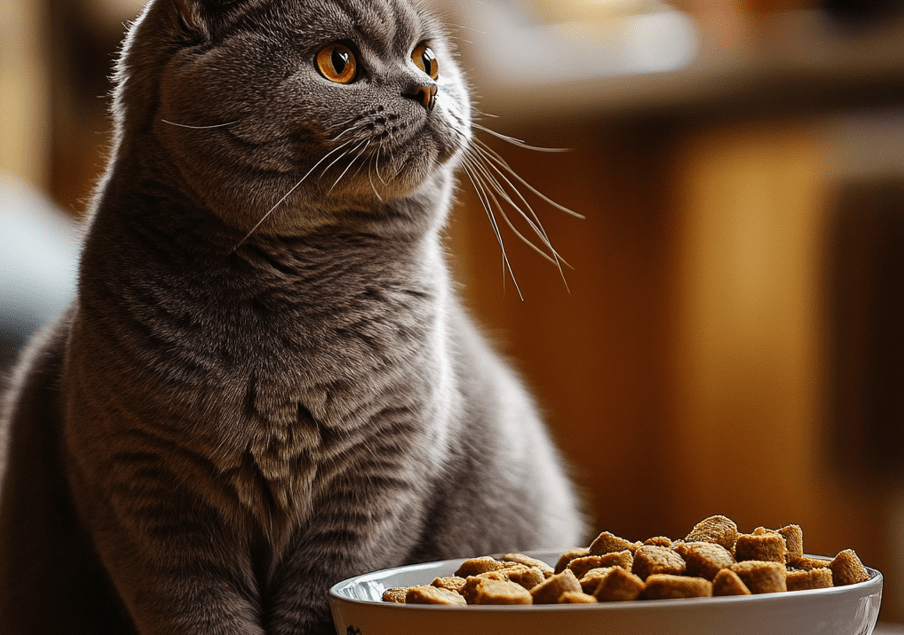
Compared to other breeds, British Shorthair cats have unique nutritional requirements. Due to their sturdy build, they are at risk of obesity, so it’s important to provide food that helps maintain a healthy weight. Their dense coat requires nutrition that improves skin and coat health. British Shorthairs also tend to have lower activity levels compared to some other breeds, so their calorie intake should be controlled accordingly.
Food for British Shorthair cats should be rich in high-quality protein sources, such as chicken or fish, which help with muscle development and maintenance. It should also contain essential fatty acids like omega-3 and omega-6, which promote healthy skin and a shiny coat. To avoid excessive weight growth, British Shorthairs should be fed cat chow with adjusted calorie levels.
Special Considerations for choosing right diet

When selecting cat food for your British Shorthair, it’s important to consider several factors to ensure the best nutrition for your furry friend. Look for high-quality protein sources as primary ingredients, particularly meats like chicken, turkey, or fish. Avoid cat foods with fillers like corn, wheat, or soy, as these have low nutritional value and can contribute to weight gain. Kittens have different nutritional needs compared to adult cats, so it’s important to choose cat food specifically formulated for kittens. Consider any specific dietary requirements or sensitivities your British Shorthair may have. Some cats have allergies or sensitivities to certain ingredients like grains or dairy products. If your cat has known allergies or sensitivities, choose cat food free from those ingredients.
British Shorthair Cat’s Nutritional Requirements
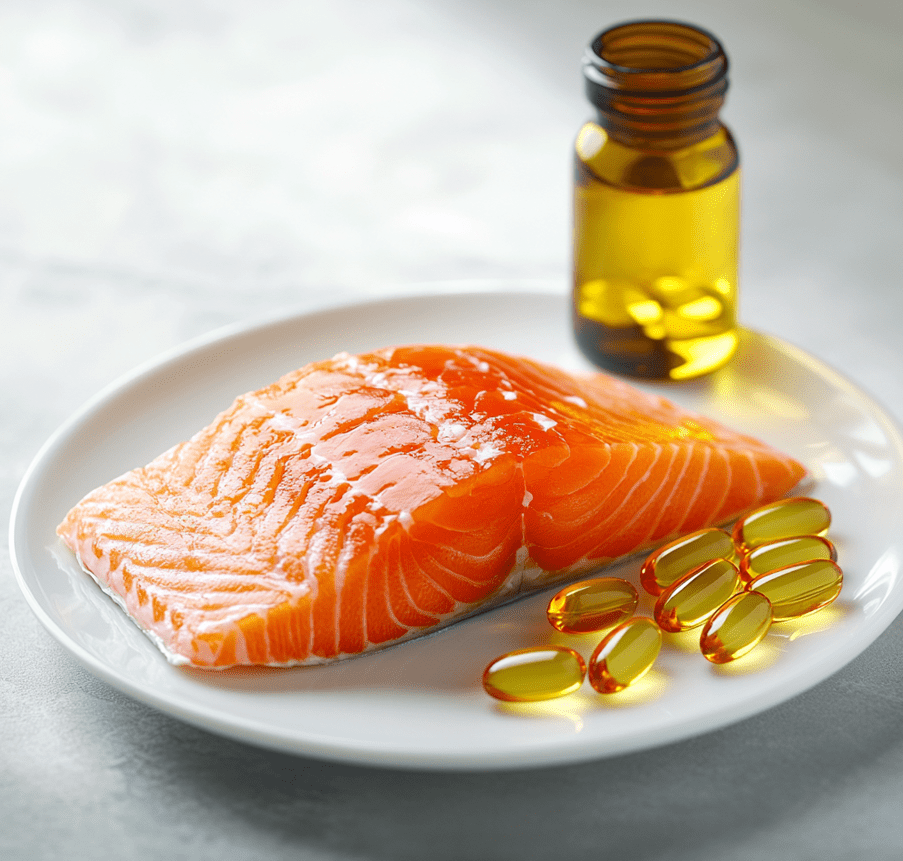
When choosing the right cat food for British Shorthairs, it’s important to look for specific ingredients that meet their unique nutritional needs. High-quality protein sources should be the primary ingredient in cat food, as it’s essential for their muscle development and maintenance. Consider named meats like chicken, turkey, or fish listed as the first ingredient on the label. These protein sources provide the amino acids necessary for optimal British Shorthair health.
British Shorthairs need a balanced mix of essential fatty acids like omega-3 and omega-6 to keep their skin and coat healthy. Consider cat foods with ingredients like fish oil, as these are excellent sources of these essential fatty acids.
It’s also important to ensure the cat food contains essential vitamins and minerals like taurine, which is crucial for heart and eye health. Antioxidants like vitamin E support immune function and overall wellness.
British Shorthair cats require 44-53 calories per kilogram of body weight daily. On average, this breed does well with 180-230 calories per day, distributed across two to five small meals.
Protein Requirements
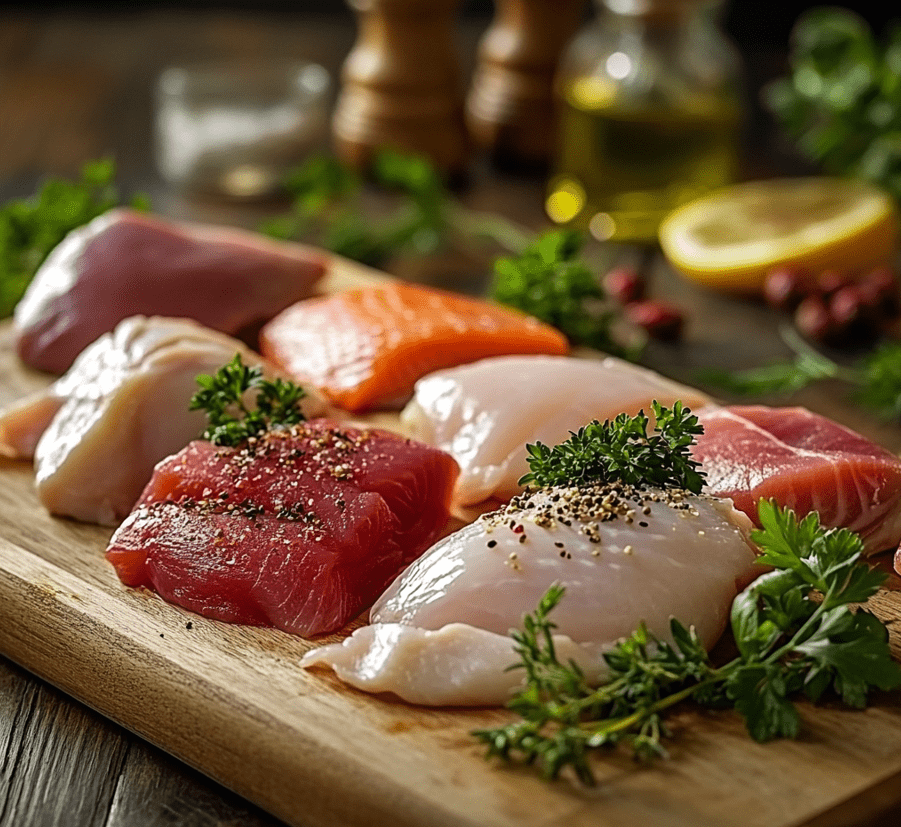
Like any cat, a British Shorthair needs protein-rich food for: muscle, bone, ligament, and tendon growth and support, efficient metabolism, brain development and neural function, and immunity against common illnesses. Since their digestive system is best suited for processing meat, British Shorthairs can easily break down and absorb the amino acid profiles of animal proteins from poultry, red meat, organs, and seafood. Vegan or synthetic proteins are not ideal for BSH due to lower bioavailability and inconsistent amino acid profiles. British Shorthairs need at least 50% protein in their diet depending on their weight.
Animal fats contain fat-soluble vitamins A, E, D, and K, as well as linoleic and arachidonic acids. These help maintain body temperature, balance hormone levels, support gastrointestinal function, and improve skin health. Without adequate fatty acids, a BSH’s coat may lose its signature luster. In more severe cases, fatty acid deficiency can cause extreme hair loss.
Types of Food for British Shorthair Cats
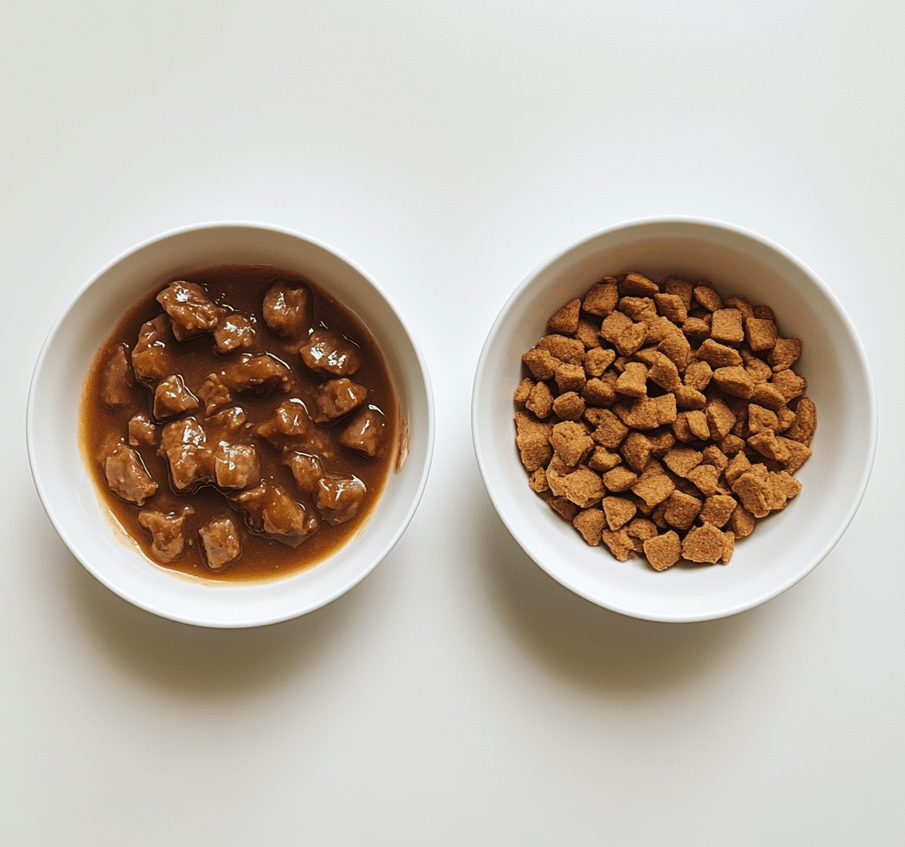
When choosing cat food for your British Shorthair, you have options between wet or dry food. Both options have their own benefits, and the decision ultimately depends on your cat’s preferences and specific needs.
Wet cat food contains high moisture content, which can be beneficial for cats who don’t drink enough water. It can be more palatable and easier to eat for cats with dental issues. Wet cat food might be a good option if your British Shorthair has a history of urinary problems, as it can help increase their water intake and improve urinary health.
Dry cat food provides your British Shorthair with a complete meal containing all the vitamins and minerals necessary for a healthy life. It’s convenient and often more economical. Dry food is also highly beneficial for dental health, as the crunchy kibble can help reduce plaque and tartar buildup through chewing action. This is particularly important for British Shorthairs as they are especially susceptible to dental disease.
Quick Snacking Guide for British Shorthairs
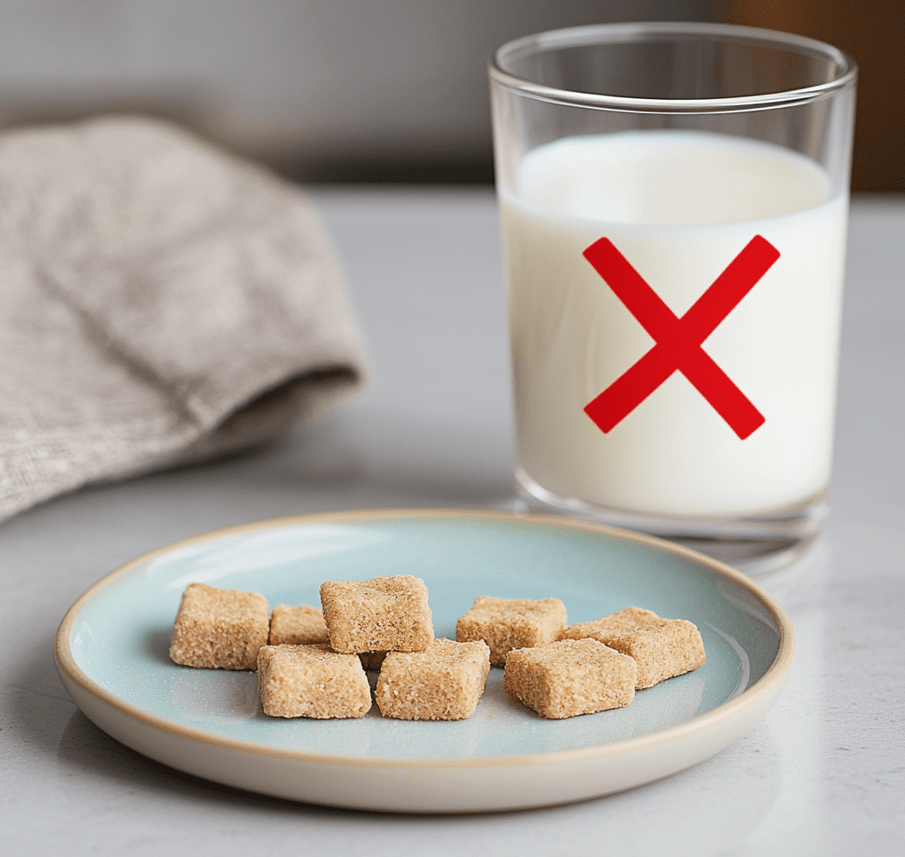
If your British Shorthair is primarily an indoor cat, avoid giving them too many fatty treats. Remove milk, cheese, dairy products, sweet foods, and sodium-loaded chips from their snack menu and include more meat-based treats. You can also give them cat grass if they struggle with indigestible food.
Common Health Issues and Dietary Solutions
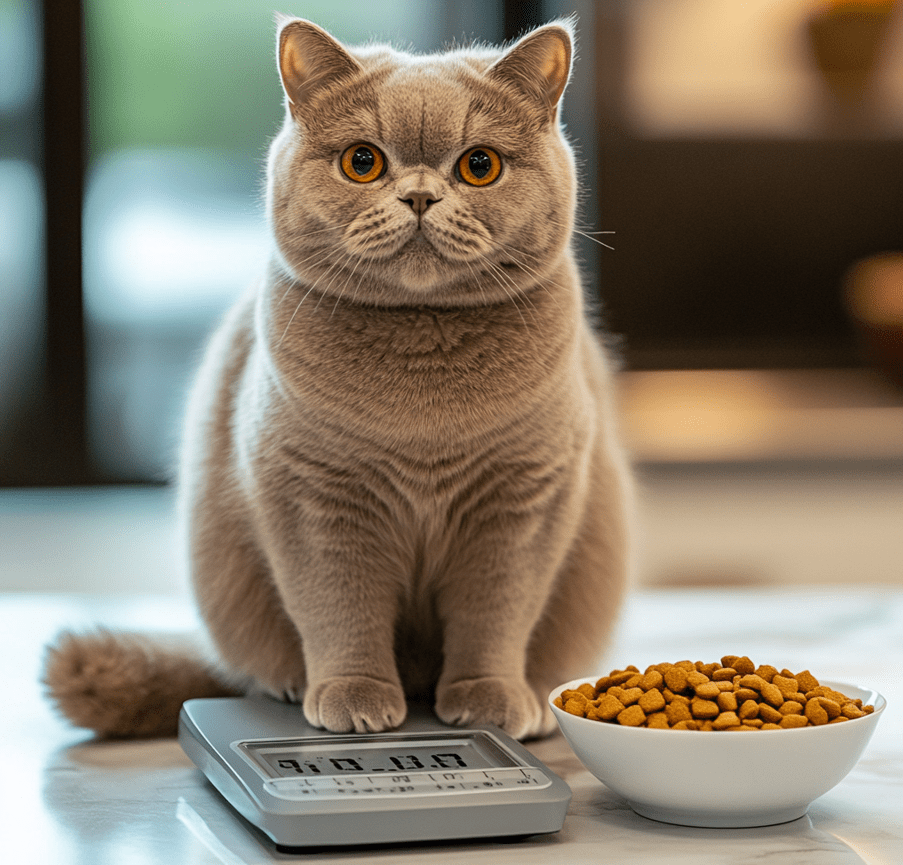
While British Shorthairs are generally a healthy breed, they can have some dietary issues. A common problem is urinary issues, such as bladder stones or urinary tract infections. These problems can be exacerbated by food that’s low in moisture or doesn’t have proper mineral balance. To prevent urinary issues, it’s important to provide your British Shorthair with food that promotes urinary health and maintains urinary pH.
Another common dietary issue for British Shorthairs is obesity. Due to their sturdy build and lower activity levels, British Shorthairs are at risk of weight gain. To prevent obesity, it’s important to monitor their calorie intake and ensure they get regular exercise. Measuring the amounts of food and involving your British Shorthair in playful activities or fun activities will help them stay active while keeping their ideal weight.
If your British Shorthair has any specific dietary issues or health concerns, it’s important to work closely with your veterinarian to create a feeding plan that addresses their individual needs. Regular veterinary check-ups and monitoring their weight and overall health are essential to maintaining their well-being.
Recommendation for choosing right the diet
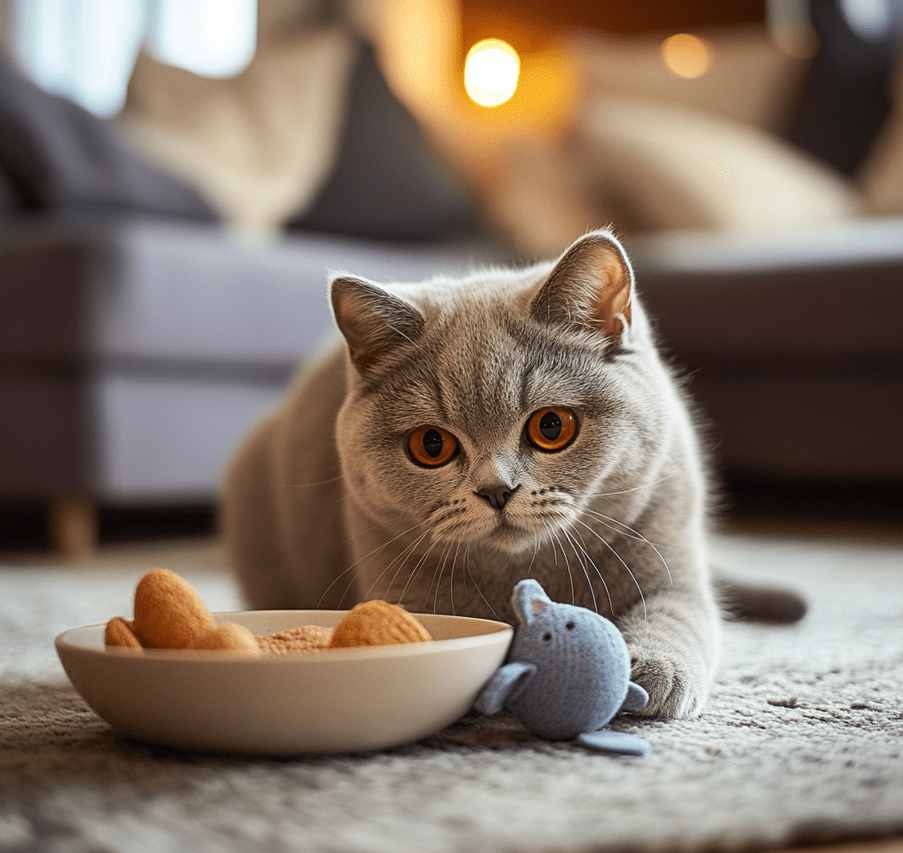
Like any cat, a British Shorthair’s eating habits must be suitable for their age and lifestyle. Your British Shorthair will do well on high-protein food but may quickly get bored with the same old cat food! Like other cats, your British Shorthair’s cat food needs will change as their demands increase, so keep this in mind and consult your vet about age-appropriate wet cat food. British Shorthairs are more likely to get their required protein levels from wet cat food, though you may want to use various dry alternatives to supplement their diet. Again, a veterinary professional may assist you on this matter. British Shorthair cats tend to gain weight, so regular, measured meals and plenty of stimulating play are essential. Like all cats, it’s important to provide plenty of fresh water.
Proper nutritional health plays a fundamental role in maintaining the health and beauty of British Shorthair cats. Food provides energy to support vital functions, and a complete nutritional formula for British Shorthairs should have an adapted balance of nutrients. Feeding them this way will provide food that is neither deficient nor excessive, both of which can adversely affect your cat’s health. Clean, pure water should always be available for regular urination. Cats are naturally accustomed to eating small portions – 7 to 10 times a day. Providing kibble with the recommended daily ration once a day will allow your British Shorthair to control their own food intake. Due to the British Shorthair’s calm nature and tendency to gain weight easily, both a specific diet and properly weighed daily portions are essential from a very young age. If your cat has health problems, please consult your veterinarian who will exclusively prescribe veterinary food.

